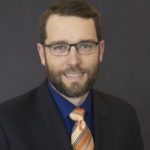
Tech Talk: Digital Ways to Improve Driver Safety and Job Satisfaction
Is driver safety a concern? Are you experiencing high driver churn? Working in the waste and recycling industry remains one of the top 10 most dangerous jobs in the U.S. Large operators who are using technology to eliminate manual tasks and provide relevant data in the cab with minimal need for driver interaction are seeing safety benefits. And easy-to-use solutions are helping drivers overcome their reservations in adopting new technology with a resulting increase in job satisfaction.
Hear from Kirk Sander, chief of staff and vice president of safety and standards for the National Waste & Recycling Association (NWRA), Geoff Aardsma, vice president of professional services for AMCS Group, and Matt Monroe, director of routing solutions, North America for AMCS Group, about how technology can be deployed to drive better safety and service outcomes. You’ll discover:
- Latest trends in industry safety and hiring strategies
- Benefits of driver technology for any business, both large and small
- How to leverage tech tools such as in-cab exception recording and route safety
- How truck maintenance, safety event automation and other tech impact driver satisfaction
Listen to a recording of the webinar here.
Read a recap of the webinar here.
About the Presenters

Geoff Aardsma
Vice President of Professional Services
AMCS Group
Geoff started his career with Waste Management, working with regulated and special waste and post-collection (landfill and transfer). He also spent five years leading commercial teams focused on recycling, organics and sustainability consulting. Before joining AMCS, Geoff worked with Enevo to bring container sensors and optimization software to commercialization. He has a bachelor’s degree in biochemistry from University of Colorado – Boulder and an MBA with specialization in sustainable management from University of Colorado – Denver. In 2017, he was named a Waste360 40 Under 40 award recipient.

Matt Monroe
Director of Routing Solutions, North America
AMCS Group
Matt has been with AMCS since 2016. He has extensive experience in route optimization, as well as operational procedures and processes. Matt has previously held positions as the head of development and operations with large-scale distribution and transportation companies. He holds a master’s degree in psychology and a bachelor’s degree in computer science from Syracuse University.

Kirk Sander
Chief of Staff and Vice President of Safety and Standards
National Waste & Recycling Association
Kirk Sander leads the National Waste & Recycling Association’s effort to make the industry safer through engagement with our members and federal agencies, specifically the Occupational Safety and Health Administration (OSHA) and the Federal Motor Carrier Safety Administration. He also serves as the Secretary for the Z245 Standards Committee. Kirk comes to NWRA from the National Safety Council, where he was a member of the government affairs team working on workplace safety, road safety and fighting the opioid crisis. Before joining the National Safety Council, Kirk was chief of staff at OSHA. As chief of OSHA, he worked to promote and improve workers lives by advising the assistant secretary, engaging with companies and associations and building coalitions domestically and internationally. He brings a wealth of knowledge of not only OSHA but the safety industry as a whole. Kirk was employed at the White House and other federal agencies. Prior to joining the White House, he was special assistant to the director, Bureau of Safety and Environmental Enforcement at the Department of the Interior. In that position, he worked on a wide variety of issues regarding the oil and gas industry, emergency response and continuity of operations. Kirk also worked at NASA where he advised the chief of staff and other top leadership on communications strategy and managed the day-to-day operations of a high-level presidential task force. Kirk has a bachelor’s degree in environmental geoscience and a master’s degree in environmental science and policy.
